Manchester Arena Inquiry: Senior firefighters 'gagged' after attack
- Published
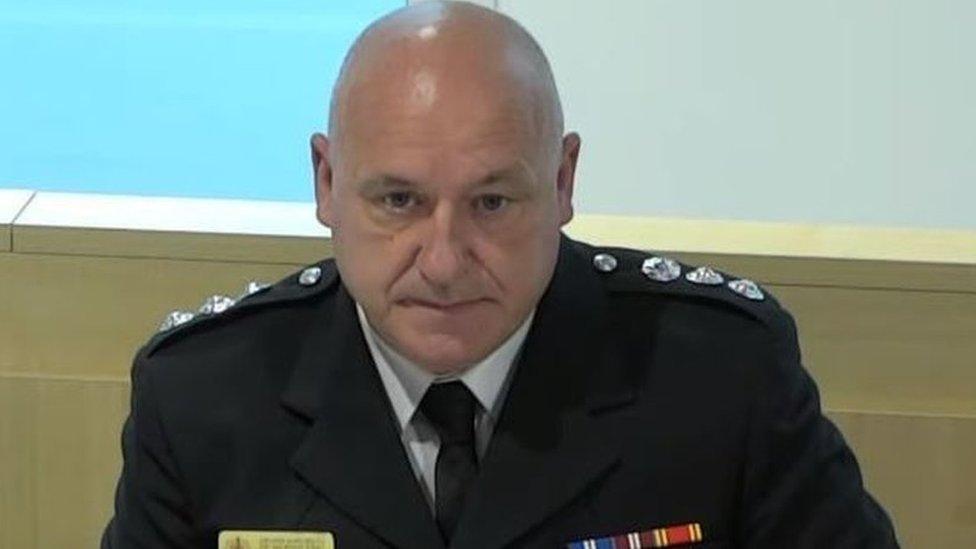
Station manager Mick Lawlor said he assumed firefighters had been deployed to the scene
Senior firefighters were initially "gagged" from talking about what went wrong on the night of the Manchester Arena attack, an inquiry has heard.
Greater Manchester Fire and Rescue Service's (GMFRS) Mick Lawlor said he was stopped from holding a meeting to learn from its response to the bombing.
The station manager told the Manchester Arena Inquiry the service "realised quickly this wasn't our finest moment".
GMFRS has been criticised for a long delay in sending crews to the scene.
Mr Lawlor was the service's lead national inter-agency liaison officer when the attack, which killed 22 people and injured hundreds more, happened on 22 May 2017.
The inquiry was told that notes from Mr Lawlor's interview with the Kerslake Review Panel in late 2017 showed he had said he felt he and his colleagues were "gagged at early degree" and that the meeting to discuss what had happened was cancelled because of "potential on-going investigations".
"We realised quite quickly this wasn't our finest moment to say the least," he said.
"In terms of learning... I requested for this [meeting] to be put together and we were stopped."

Twenty-two people were killed in the May 2017 bombing
The station manager told the hearing he was off-duty and was woken up to be told about the explosion, but he had then made his way to the "force command module" at Greater Manchester Police (GMP) headquarters about an hour later.
He said when he was told firefighters were being mobilised to a rendezvous point at Philips Park fire station, three miles away from the arena, he "didn't query it" and it "didn't raise any bells", though "rightly or wrongly", he had assumed it was a second rendezvous point and officers had already been deployed to the scene.
He admitted that not checking if that was the case was something he had "self-reflected on", adding: "I could have and should have asked for additional information."
He also said he was not aware of the anger of firefighters over the delayed response until the following day.
The inquiry also heard from former North West Fire Control senior operations manager Tessa Tracey, who said improvements had been made at the regional control room following mistakes on the night of the attack.
She agreed there had been six or seven times when call operators or team leaders failed to pass on critical information to senior fire officers, which may have slowed GMFRS's response.
She also agreed there should have been better training for call operators in passing on important information during a major incident.
The inquiry continues.

Why not follow BBC North West on Facebook, external, Twitter, external and Instagram, external? You can also send story ideas to northwest.newsonline@bbc.co.uk
- Published30 June 2021
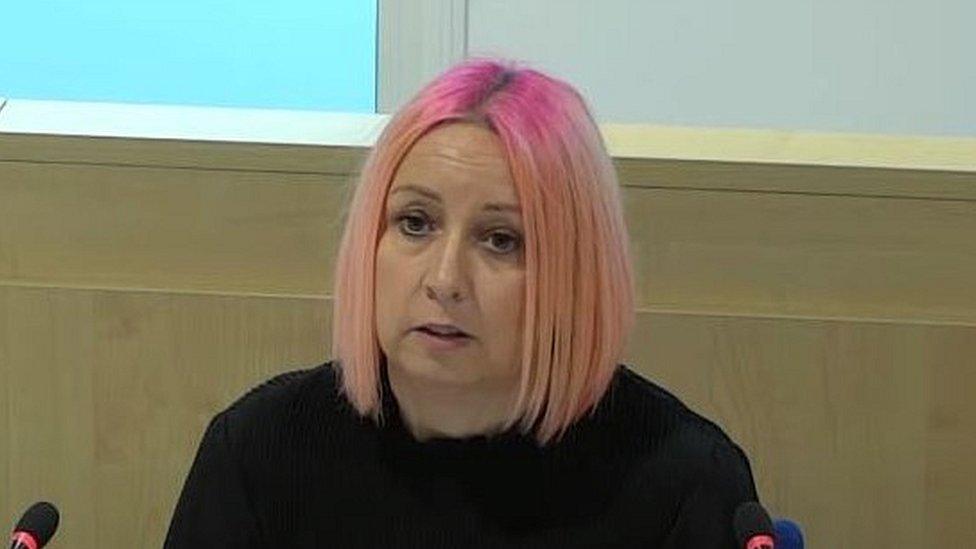
- Published29 June 2021
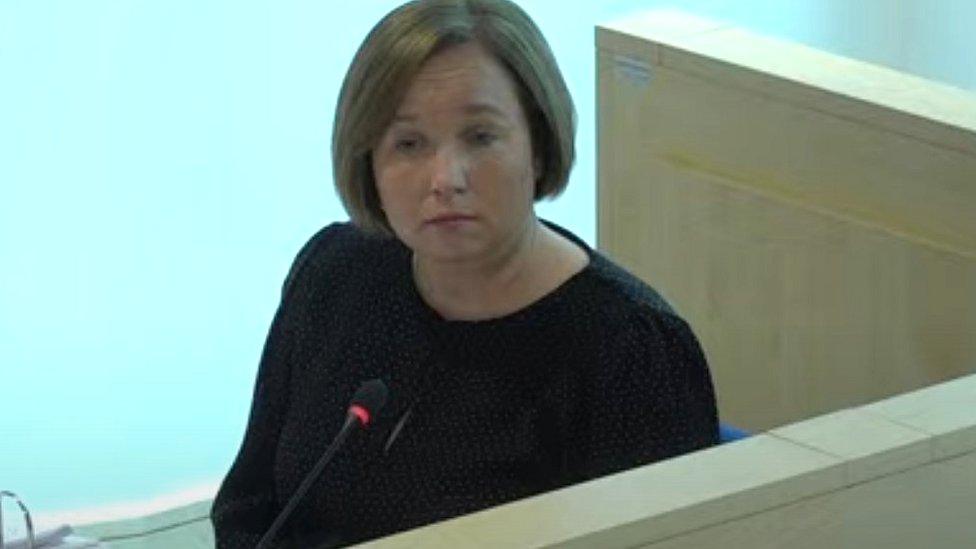
- Published28 June 2021
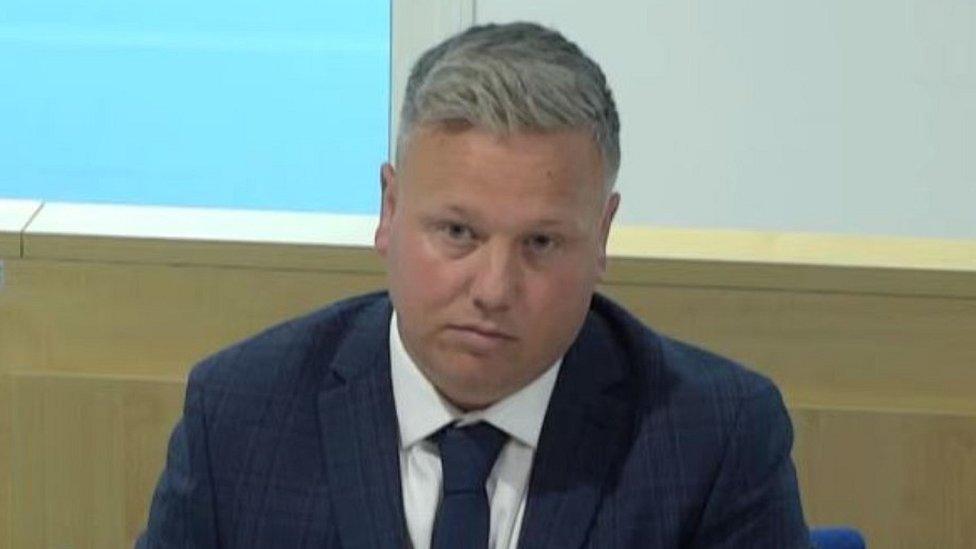
- Published24 June 2021
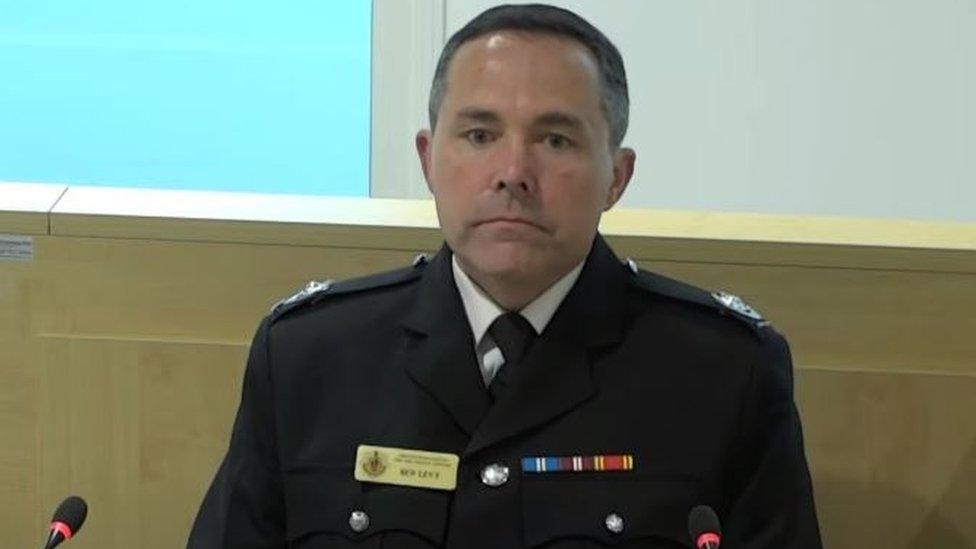
- Published23 June 2021

- Published22 June 2021
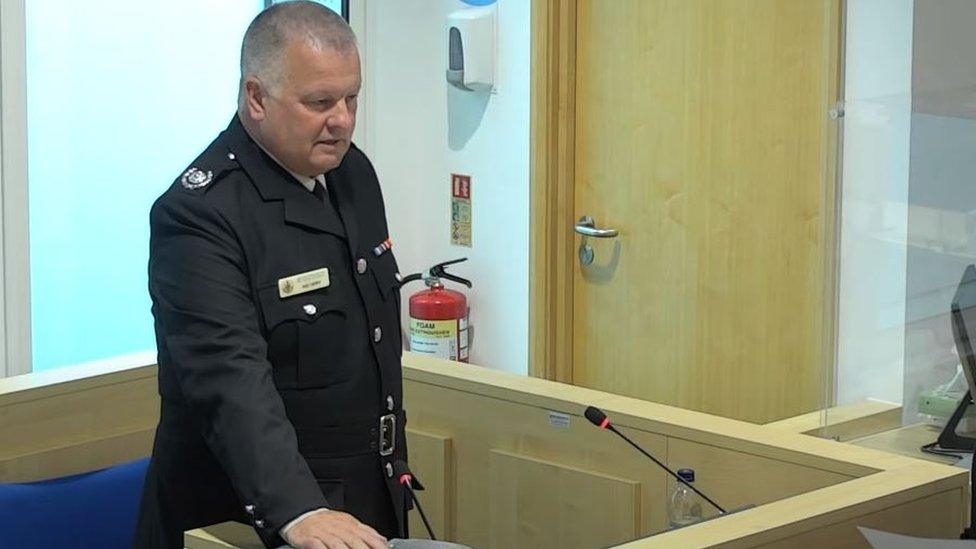
- Published21 June 2021
